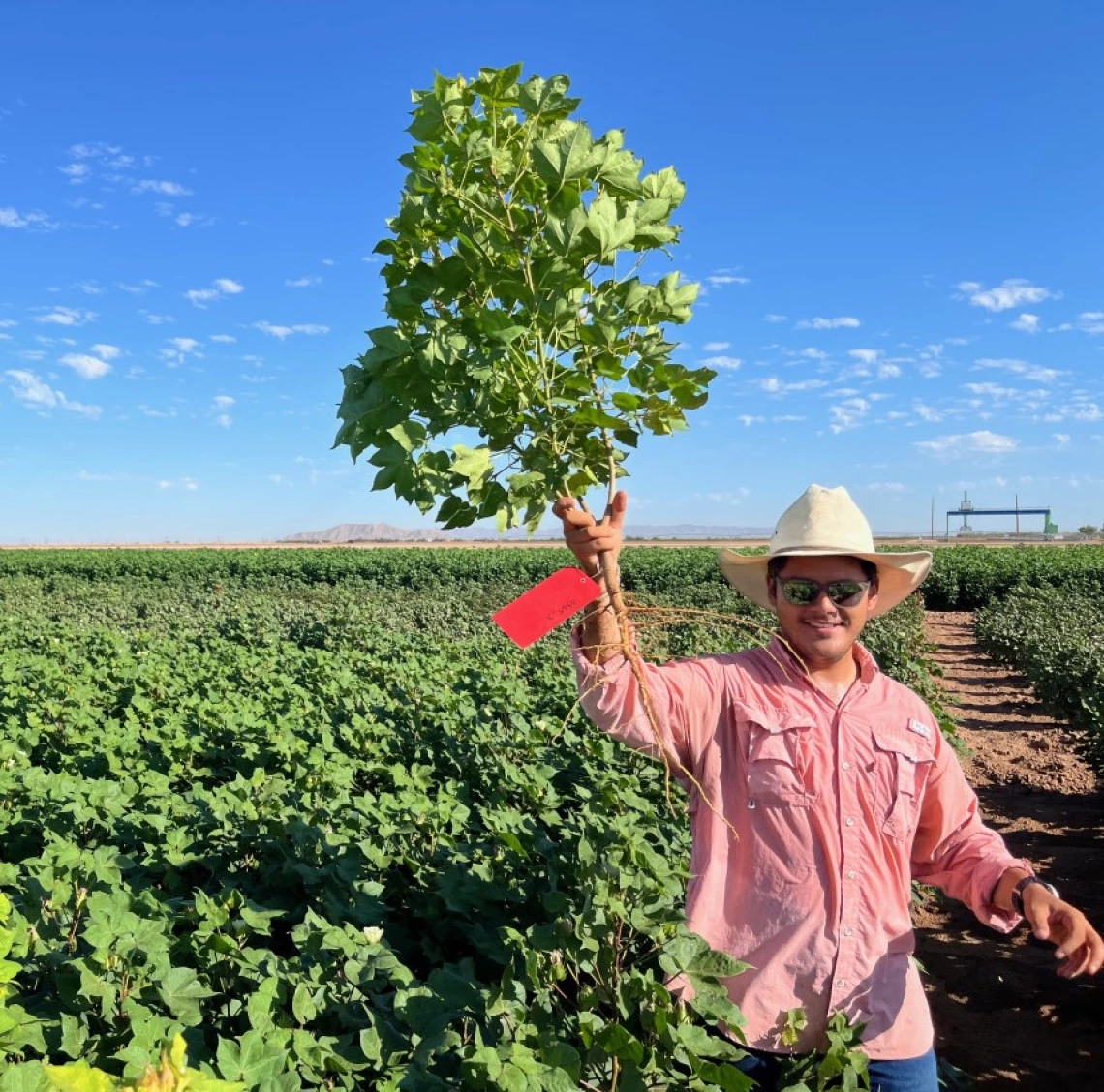School of Plant Sciences Seminar Series

Sebastian Calleja
Speaker
When
Where
Abstract: A plant’s phenotype is a direct result of its genetics, environment, and their interaction. Therefore, to maximize crop performance it is imperative to understand the diversity of key phenotypic traits under various environmental conditions. Measuring certain traits at scale remains challenging due to the time, labor, and potentially destructive nature of traditional measurement methods. These limitations hinder our ability to do population-level analyses of these phenotypes and thus reduce our ability to understand the genetic architecture of these traits of interest. This research aims to alleviate these limitations by utilizing high-throughput phenotyping (HTP) methods to characterize traits that indirectly inform on agronomically important traits in a non-destructive, accurate, and more efficient manner. Specifically, the objectives of the research are to phenotype a cotton diversity panel by (i) mapping plant canopy temperature collected using a small unmanned aerial system (sUAS) and (ii) characterizing and mapping cotton seed and fiber traits using seed scanning methods. By validating and applying HTP methods, we can enhance our ability to genetically dissect complex traits, providing critical insights into cotton’s response to environmental stress and producing valuable information that can be utilized to further improve cotton.

